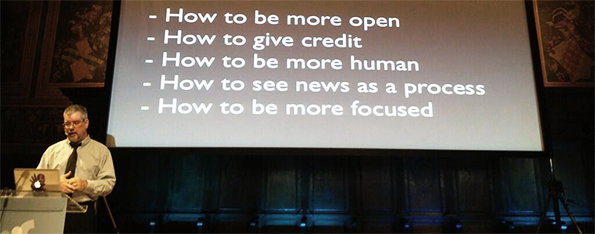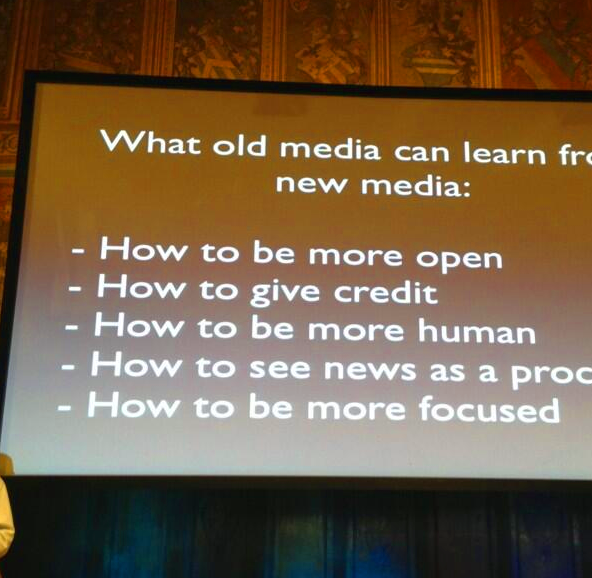by Fabio Chiusi – translated by Roberta Aiello

There are five pieces of advice. In order not to die, do not be overwhelmed. If the advice is given by Mathew Ingram of GigaOm, one of the most authoritative voices in the world among those of the so-called “new media”, the ‘old’ would do well to listen. Number one: no longer I (journalist) speak, you (readers) listen, but less interaction, less quality. Number two: you are less believable without links (someone tell that to the editors who still consider linking a problem) – and, furthermore, give credit to the source. Number three: we must be more human, but not too human. This means: “We must admit that we make mistakes, we have flaws,” without exchanging Twitter for the living room. Number four: the news does not have a beginning and an end now; it is a process, not a finished product. Number five: the reader needs to be provided a way to extract the essence from that uninterrupted flow of events.
“How to teach the fish to walk” is the title of his keynote speech (video). It is the evolution of the species. It is useless to go against the current. When Ingram, answering to what his media diet is, reveals: “I do not have a front page”, you can say this has been true for many of us for a long time. Understanding that it is no longer a question of imperatives imposed from above, the repetition of the liturgy of traditional journalism in disguise. More simply, it is what it is, like it or not.
Throughout Ingram’s speech one can sense that extraordinary (because, of course, it is out of the ordinary in our country) attitude of humility, already shown by Aron Pilhofer in his speech, two days before. Ingram asks us to come down from on high, and he is the first to do so – leaving more than an hour to audience questions. He confronts openly and sincerely the point highlighted in his presentation, and translates it into practice with a simplicity that reveals a listening attitude practiced day by day.
Here lies, maybe, the difference between the words of Pilhofer. This time, to feel means to include and increase the intake of the reader, even before looking in the mirror, to do self-criticism. “People very often know things that we do not know,” says Ingram. In other words, this allows you to go beyond the mere rebuttal of the sophists of the moment. If “someone out there knows what you need to know”, the search is not in vain.


